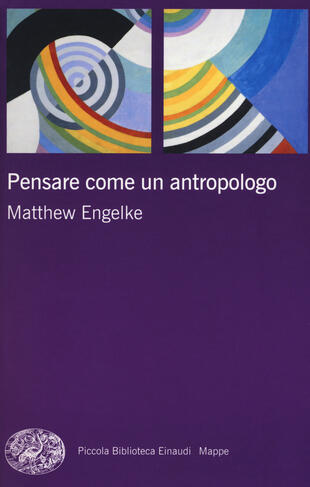

Sinossi
Cos'è l'antropologia? Cosa può dirci del mondo? Perché, insomma, è importante? Per oltre un secolo, gli antropologi culturali hanno fatto il giro del globo, da Papua Nuova Guinea alle periferie delle nostre città e dalla Cina alla California, portando alla luce informazioni sorprendenti su come gli esseri umani organizzano le loro vite ed esprimono i loro valori. In questo modo, l'antropologia ha cercato più di ogni altra disciplina di comprendere cos'è la cultura. Intrecciando esempi e teorie provenienti da tutto il mondo, Matthew Engelke ci presenta dell'antropologia un quadro vivace, sempre accessibile, talvolta irriverente, che attraversa una vasta gamma di approcci e temi, classici e contemporanei, e chiama in causa il contributo dei suoi protagonisti. Presentando una serie di casi esemplari, il volume invita il lettore a riflettere su alcuni concetti chiave attraverso i quali l'antropologo si propone di decifrare il mondo: da cultura, civiltà e natura ad autorità, sangue e identità. Lungo il percorso, si chiarisce il ruolo centrale ricoperto da questa disciplina: un sapere di frontiera che ci aiuta a penetrare culture lontane e punti di vista diversi, svelando contemporaneamente qualcosa di noi stessi e del nostro modo di vivere.
- ISBN:
- Casa Editrice:
- Pagine: 271
- Data di uscita: 19-06-2018
Recensioni
Not a happy experience, in fact quite disconcerting. Usually if I don’t like a book I take the fairly reasonable view that it’s them, not me, where the problem lies. But here, I think it’s me. This is probably a pretty good book but for me it was…urrghhhh…. Like mudwrestling with a shapeshifter. One Leggi tutto
If you already think like a sociologist or cultural studies scholar, there isn't much in this book that will turn your intellectual worldview upside down. It provides a general overview of anthropology as an academic subject through its focus on seven themes, giving, in passing, some valuable sugges Leggi tutto
To think like "the natives", it is imperative to adopt an empiricist approach, because pure theoretical reasoning will only lead one astray. While the human mind has a universal structure, its modes of interpreting the world, having a perspective, and organising social relationships are highly varia Leggi tutto
لقطات منوّعة من جدالات الإنثروبولوجيين عن الثقافة والسلطة والقيمة وعشرات الموضوعات لا يعطي مقدمات ولا يجرّد أدوات التفكير ولا يدرّبك تشعر بأنّك في مجلس نصف مملّ مع أكاديميّ كهل يذكر كلّ الأشياء التي أثارت انتباهه في رحلة تعلّمه Leggi tutto
The book truly is an introduction to anthropology as a field, not quite what its title suggests. There is no guide or toolbox that anthropologists use (and it's possible there never could be one). It reads like a highly engaging professor delivering the full semester's worth of Anthro 101 lectures. T Leggi tutto
This new Pelican series has been a treat so far, and Think Like an Anthropologist is one of the best so far. Professor Engelke approaches anthropology in a way that makes it accessible to the lay person without trivialising the topic or its methods, not an easy deed. The book takes us through the "de Leggi tutto
Reviewed for The Bibliophibian. This book is less “how to think like an anthropologist” and more “how do some anthropologists think, and what do other anthropologists think about that”, and so on. Which isn’t a bad thing, but it goes into the history of anthropology and various examples and at times Leggi tutto
ترددت في تقييم الكتاب طويلا، حتى أثناء قراءتي إياه، إلى أن وصلت إلى الفصل الأخير منه حيث توصلت إلى قناعة، ورسوت على شاطئ فيما يخص رأيي النهائي به. بكل صدق وأمانة، ورغم كل شيء، ألفيت الكاتب عارفا بالعلم الذي يتحدث ويكتب عنه، وملما بشكل جيد بمواضيعه التي تناولها في الكتاب، حتى إن المصادر التي يشير إليه Leggi tutto
Citazioni
Al momento non ci sono citazioni, inserisci tu la prima!























